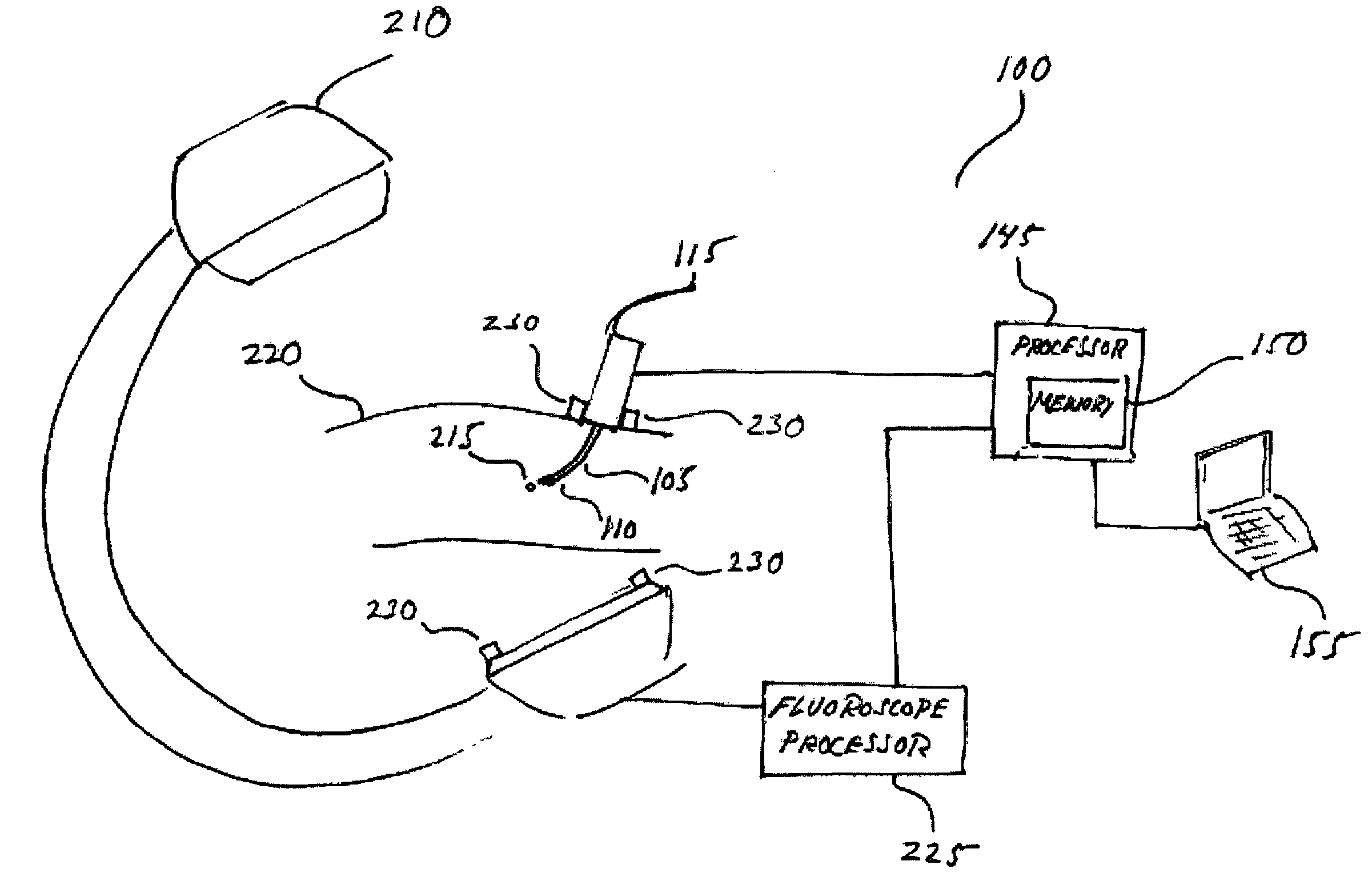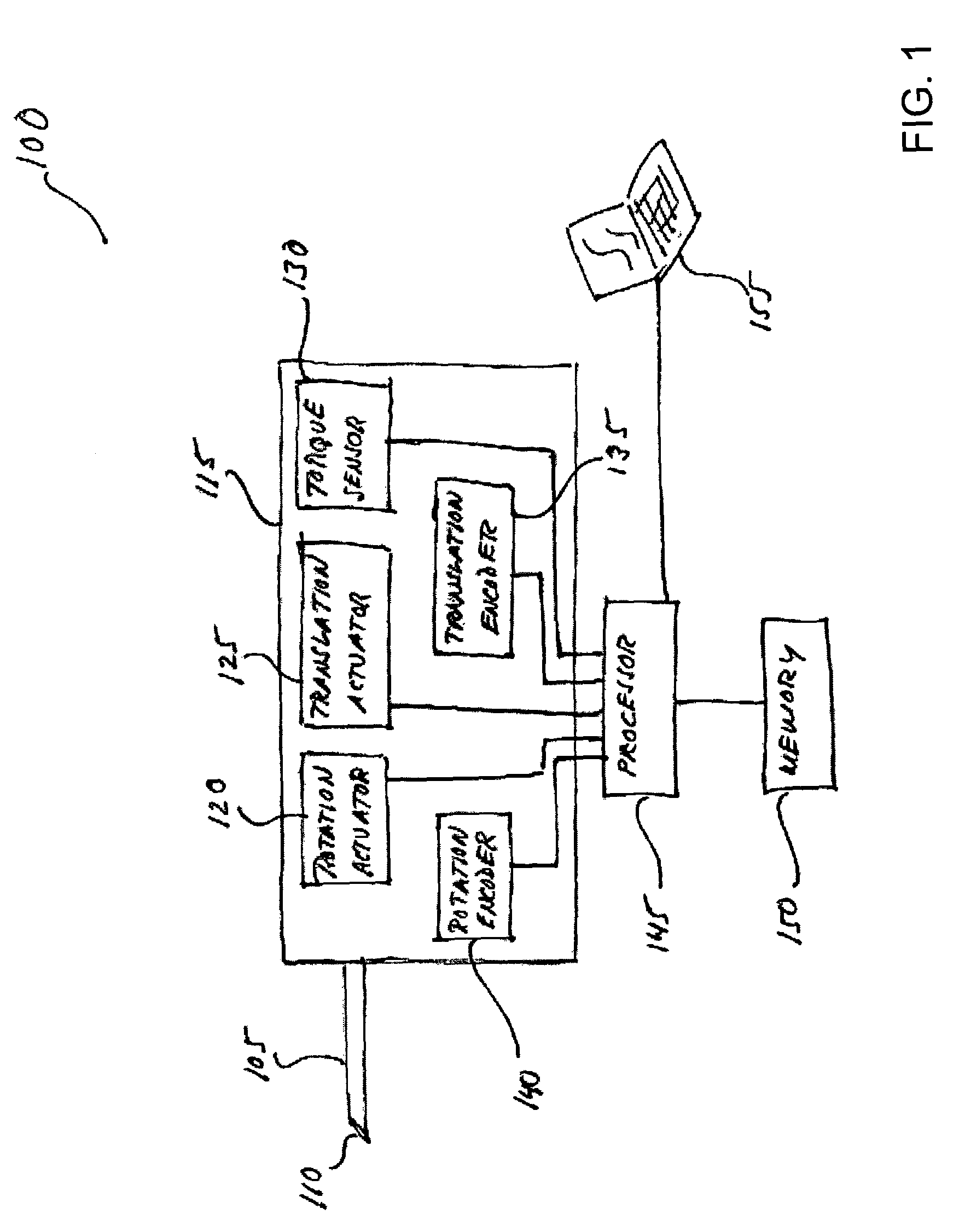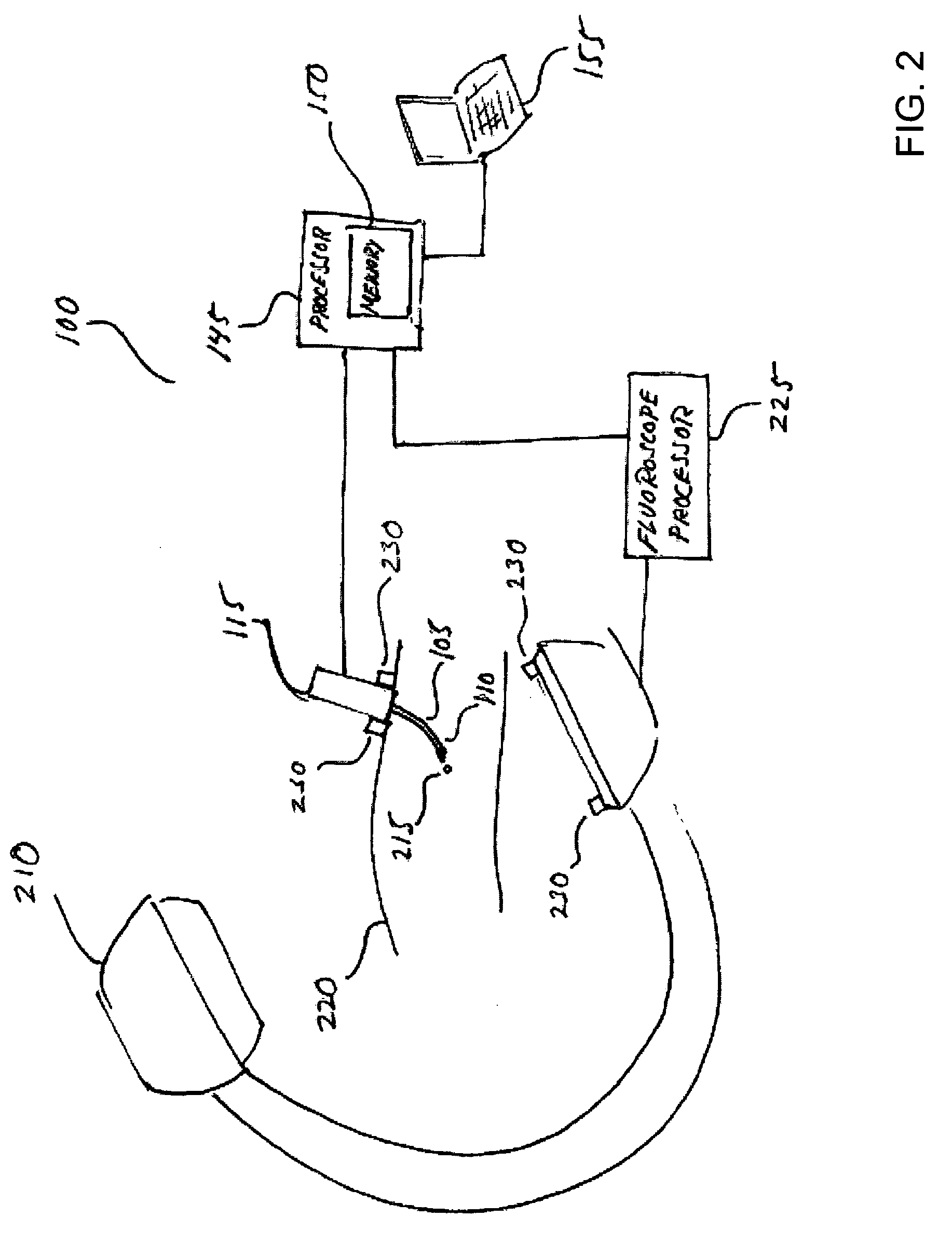Distal bevel-tip needle control device and algorithm
a control device and needle control technology, applied in the field of devices and techniques for guiding surgical needles, can solve the problems of affecting so as to improve the accessibility of anatomical features, improve the accuracy and precision of needle placement, and reduce the complications of needle insertion. , the effect of reducing the risk of needle insertion
- Summary
- Abstract
- Description
- Claims
- Application Information
AI Technical Summary
Benefits of technology
Problems solved by technology
Method used
Image
Examples
Embodiment Construction
[0033]The present invention steers a needle with a bevel tip through a tissue medium by exploiting the pressure exerted by the tissue medium against the bevel as the needle is driven through the tissue. The pressure exerted on the bevel deflects the needle along a vector having a component perpendicular to the direction of motion of the needle. The extent of needle deflection is a function of the geometry and material properties of the needle, the mechanical properties of the tissue medium in which the needle is moving, and the linear velocity and angular orientation of the needle. By controlling the angular orientation of the bevel and the linear velocity of the needle, the needle may be steered or guided into a desired position and orientation. In doing so, the needle may be accurately and precisely steered toward an intended anatomical feature, such as a liver tumor, a brain clot, or a target area within a prostate. Further, the needle may be steered to locations previously inacc...
PUM
 Login to View More
Login to View More Abstract
Description
Claims
Application Information
 Login to View More
Login to View More - R&D
- Intellectual Property
- Life Sciences
- Materials
- Tech Scout
- Unparalleled Data Quality
- Higher Quality Content
- 60% Fewer Hallucinations
Browse by: Latest US Patents, China's latest patents, Technical Efficacy Thesaurus, Application Domain, Technology Topic, Popular Technical Reports.
© 2025 PatSnap. All rights reserved.Legal|Privacy policy|Modern Slavery Act Transparency Statement|Sitemap|About US| Contact US: help@patsnap.com



